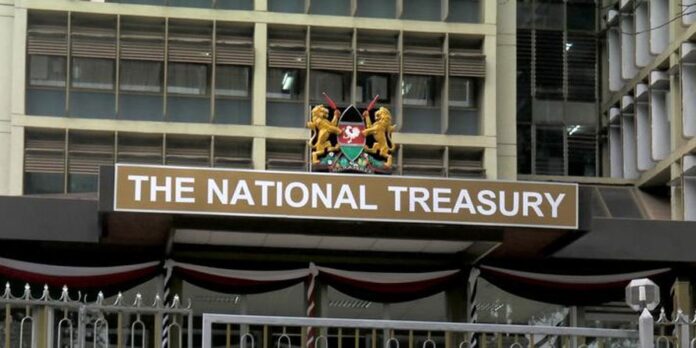The Kenya government has warned of a belt-tightening period as the country attempts to navigate the economic storms triggered largely by the Russia-Ukraine war.
The National Treasury is banking on a ceasefire between the two-neighbouring Eastern European nations to jump start the recovery of an economy battered by roaring inflation, weakening shilling, high cost of living and mounting debt service obligations.
The Russian invasion of neighbouring Ukraine and subsequent war that broke out in February last year has disrupted global supply chains leading to a surge in food and commodity prices and pushed many countries into economic crisis.
National Treasury Cabinet Secretary Njuguna Ndung’u warned of tough times ahead as the government seeks to reduce budget deficits and debt accumulation through suspension of spending on non-priority recurrent spending such as non-essential travel by state officers.
“These are many and those that can be suspended for some time,” Prof Ndung’u told The EastAfrican last week, without disclosing details on other non-core expenditures to be impacted.
Last year, Kenya’s economy is estimated to have contracted to 5.5 percent from 7.5 per cent in 2021, according to the National Treasury.
According to the International Monetary Fund Kenya is going through a period of tight forex demand, accompanied by reduced liquidity in the interbank foreign exchange market and a depreciation of the local currency following the war in Ukraine.
Kenya’s inflation for December stood at 9.1 percent against a government target of five percent, with a flexible margin of 2.5 percent on either side in the event of adverse shocks.
The Kenya shilling was, on the other hand, trading at Ksh123.77 against the greenback last week, according to Central Bank data.
“There are clear signals that New Year 2023 is likely to shape up to be rough one for the global economy. Multiple factors are likely to come into play and affect the growth prospects across the globe,” Prof Ndung’u said last week during the official opening of forum for public hearings for the 2023/2024 fiscal year and the medium-term budget preparation.
“For instance, if the Russia-Ukraine conflict escalates, global supply chains will continue to be affected thereby causing supply disruptions.”
Dealers at AZA Finance, the Pan-African foreign exchange firm, said pressure would continue piling on Africa’s central banks to raise interest rates this year amid lingering inflationary strains and defending currencies against depreciation would also add more pressure for further rate hikes in the year ahead.
Sierra Leone became the first African country to increase rates this year, lifting its benchmark 125 basis points to 18.25 percent.
“Low-income countries have been hit hard by these supply disruptions, debt, surges in food and commodity prices, the devastating effects of climate change, and limited access to foreign finance. Even in middle- and high-income economies, a combination of factors are hitting hard on cost of living,” said Prof Ndung’u.
“We have witnessed here in Kenya that food security and climate change has produced severe crisis compounded by this supply disruptions, inequality, poverty and social conflicts.”
Kenya’s public debt stands at Ksh8.74 trillion ($71.05 billion), equivalent to 62.3 percent of gross domestic product. This comprises domestic debt of Ksh4.38 trillion ($35.6 billion) and external debt of Ksh4.35 billion ($35.36b).




